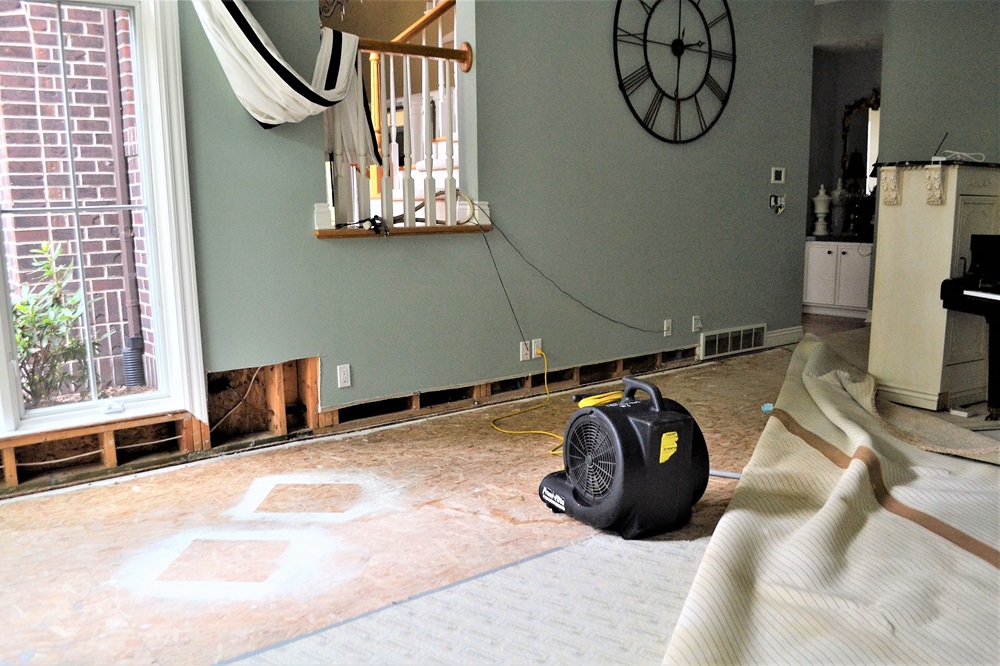Table of Contents
Understanding the effect of water damage on your property and implementing preventive measures is crucial to maintaining the value and safety of your property.
This guide explores the causes, effects, and categories of water damage, alongside strategies to safeguard your home against its potentially devastating impacts.

How Water Damage Can Affect the Value of Your Home
If you don’t take care of water damage right away, it can really hurt your property’s value in two major ways: by causing mold to grow and by creating hidden damage to the structure of your house, both of which can lower its worth over time.
People Also Read : 7 Steps to Take After Finding Water Damage in Your Home
Part 1: Understanding Water Damage On Your Property & Why You Should Take It Serious
What is Water Damage?
Water damage refers to the negative consequences that occur when water invades your home, affecting its structure, appearance, and safety. Whether through flooding, leaks, or condensation, uncontrolled water can wreak havoc in various ways.
Causes of Water Damage
- Overflow of water due to taps left running.
- Blocked drains causing backups.
- Leakage from household appliances like dishwashers
- Severe weather events and natural disasters leading to flooding.
Categories of Water Damage
- Clean Water: This water poses no immediate threat to health, typically originating from sanitary sources.
- Grey Water: Contains contaminants that could cause illness and originates from appliances and toilet overflows.
- Black Water: Highly contaminated, posing serious health risks, typically from sewage or natural disaster floods.
Understanding Water Damage Implications on Your Property
Water damage can subtly erode the foundation of your home’s value through structural damage and mold growth, which are detrimental to both the aesthetics and safety of your property.
Effects of Water Damage on Your Property Value
Mold Growth: A Silent Value Decreaser
Mold can drastically reduce a home’s appeal and market value, as it raises health concerns and necessitates costly remediation efforts. The presence of mold can deter prospective buyers or lead to reduced offers, impacting the overall sale potential of your property.
Structural Damage: Undermining Investment
Water damage can weaken structural elements like foundations and walls, leading to significant repair costs and a decrease in property value.
People Also Read : Flood and Water Damage Restoration In Fort Collins Colorado | (888) 456-0911
Structural compromises may not be immediately apparent, making regular inspections crucial to maintaining your home’s market value.
Prevention and Mitigation Strategies
Regular Inspections: Early detection through routine inspections by professionals can prevent minor issues from becoming major value detractors.
Timely Repairs: Addressing damage promptly prevents further deterioration and preserves the property’s structural integrity and value.
Disclosure and Documentation: Maintaining a transparent record of any water damage and repairs can reassure potential buyers of the home’s upkeep, potentially preserving its market value.
Part 2: Long-Term Effects and Prevention
Effects of Neglected Water Damage
- Mold Growth: Thrives in moist environments, potentially causing health issues and reducing property value.
- Structural Risks: Water can weaken the structural integrity of your home, leading to costly repairs and reduced property value.
Conclusion
While water is an indispensable part of life, its mismanagement can lead to significant damage on our property and can lead to the value of property depreciating.
By understanding the types and causes of water damage, as well as implementing effective prevention strategies, homeowners can protect their property and ensure a safe, healthy living environment. Remember, the key to combating potential long-term effects is swift, expert action and thorough restoration efforts from the onset.
